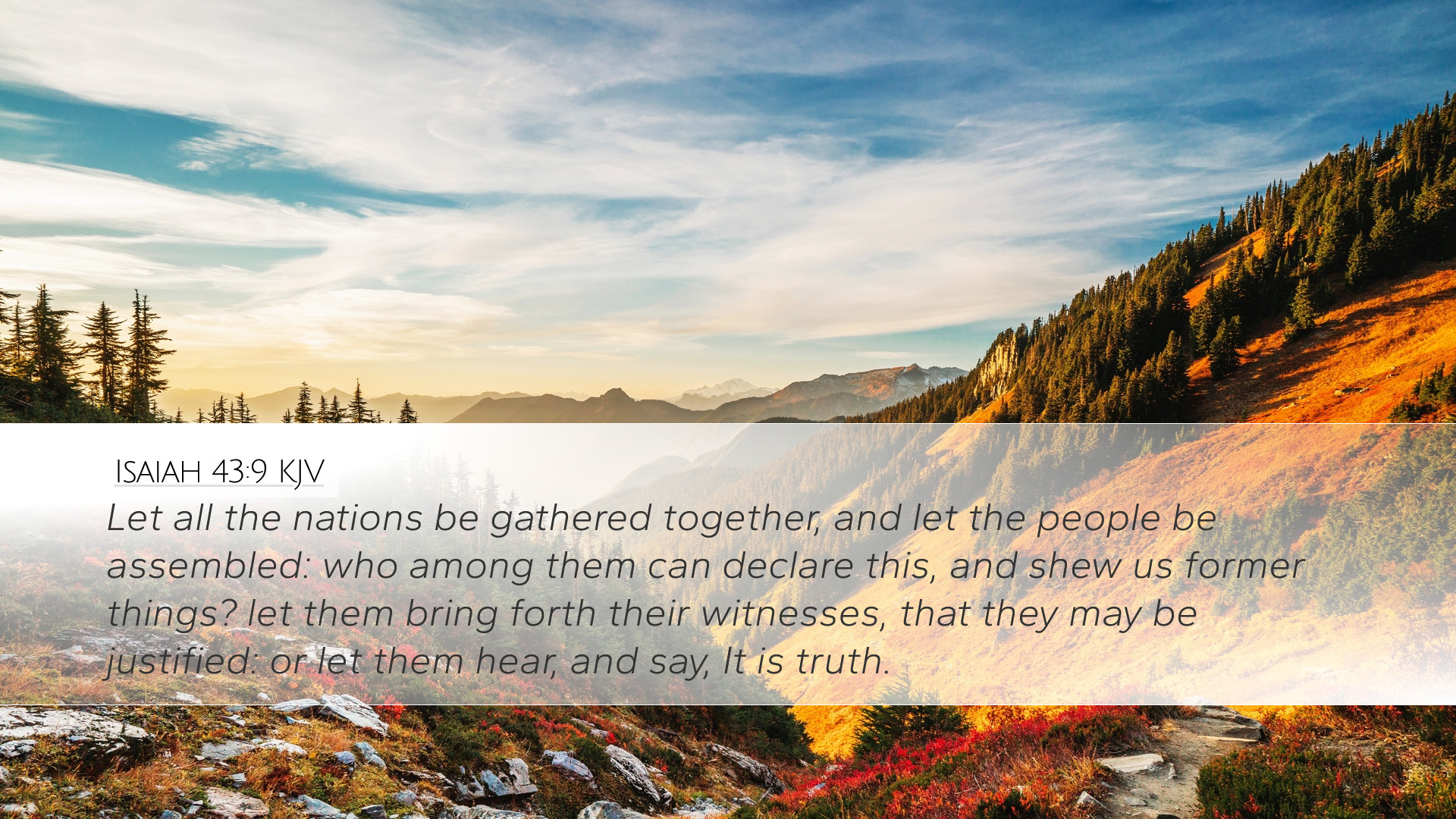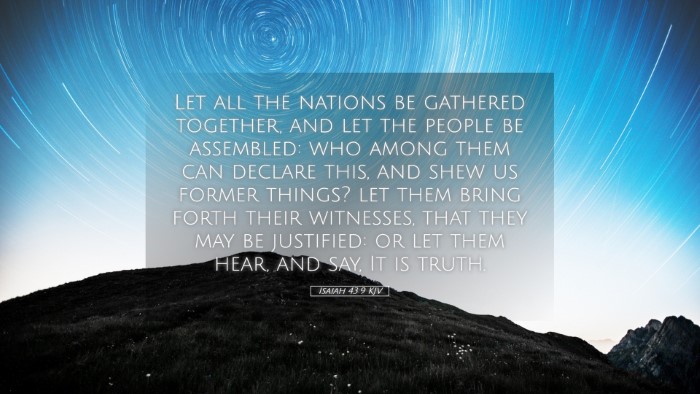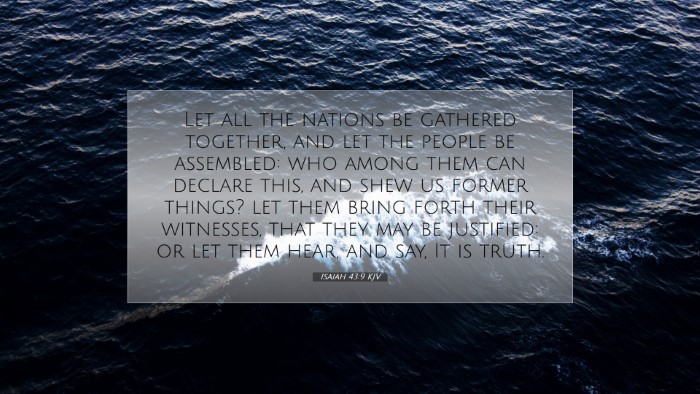Commentary on Isaiah 43:9
Isaiah 43:9 (ESV): "All the nations gather together, and the peoples assemble. Who among them can declare this and show us the former things? Let them bring their witnesses to prove them right, and let them hear and say, 'It is true.'
Introduction
The verse Isaiah 43:9 serves as a powerful testament to God's sovereignty and the futility of idolatry in the context of God's justice and power to deliver His people. This commentary synthesizes insights from various public domain sources, providing a deep understanding of the text and its theological implications.
Contextual Background
Historical Context: Isaiah, a prophet during one of Israel's most turbulent times, addresses a nation in exile and despair. He assures them of God's plan for restoration and justice. The gathering of nations mentioned in this verse highlights the eschatological vision of God's ultimate sovereignty over all peoples.
Matthew Henry's Insights
Henry discusses the nature of the 'nations' gathering before God. He interprets this assembly as a challenge to the nations' claims of power and divinity. He explains that God invites them to prove their worth and legitimacy as gods, which is fundamentally misguided. Henry comments on the weight of God's authority as He poses rhetorical questions to challenge idol worship:
- Challenge to Idols: The phrase "Who among them can declare this" indicates that idols cannot speak or foretell the future, affirming their impotence.
- God's Knowledge: Only God possesses foreknowledge and the capability to affirm claims about future events, positioning Him as the ultimate deity.
Albert Barnes' Perspective
Barnes elaborates on the role of witnesses in the context of establishing truth. He draws parallels between witnesses in legal matters and the evidence God provides through history:
- Witnesses of History: Barnes encourages understanding the significance of past events as divine testimony to God's character and sovereignty, emphasizing the coherence of God's promises with Israel's history.
- Response of the Nations: The challenge for nations to bring witnesses highlights God's assertion of uniqueness in His role as the creator. As Barnes notes, no other deity can substantiate their existence or authority, unlike God.
Adam Clarke's Commentary
Clarke approaches the text by focusing on the intent behind God's call for the nations to gather. He states that this assembly serves both as a warning and a declaration:
- The Warning to Nations: Clarke interprets this verse as a call to accountability, underlining that all nations must reckon with the true God.
- Invitation to Evidence: He highlights that God's patience and willingness to engage with humanity showcases His mercy while also underscoring the inevitable judgment that follows such challenges to His authority.
Theological Implications
This verse encapsulates significant theological themes such as God's sovereignty, the futility of false worship, and the calling of nations to recognize their Creator. Both Henry and Barnes emphasize the importance of acknowledging God's unique role in providence and history:
- God's Sovereignty: The gathering of nations suggests a future reckoning and God's ultimate authority over creation.
- Cultivating Faith: For the faithful, this passage encourages a robust faith in God's plans against the backdrop of prevailing secular beliefs.
- Call to Witness: The emphasis on witnesses reminds believers of their role in affirming God's truth in a world rife with competing ideologies.
Practical Applications
For pastors, students, and scholars alike, Isaiah 43:9 offers a rich tapestry of insights that can be applied in ministry and theological education:
- Teaching on Sovereignty: Use this verse to illustrate the unique nature of God compared to idols, fostering an understanding of His supreme authority.
- Encouragement in Trials: Relate the historical context of Israel's struggles to present-day challenges, emphasizing God’s faithfulness through adversity.
- Evangelism: Utilize the concept of witnesses to challenge congregants to share their testimonies of God’s action in their lives.
Conclusion
Isaiah 43:9 not only challenges the idolatrous narrative of the surrounding cultures but also reinforces the foundational truths of God's character and His relationship with humanity. As seen through the works of Henry, Barnes, and Clarke, it serves as a profound reminder of God's call to all nations to acknowledge His sovereignty and the truth of His word.


